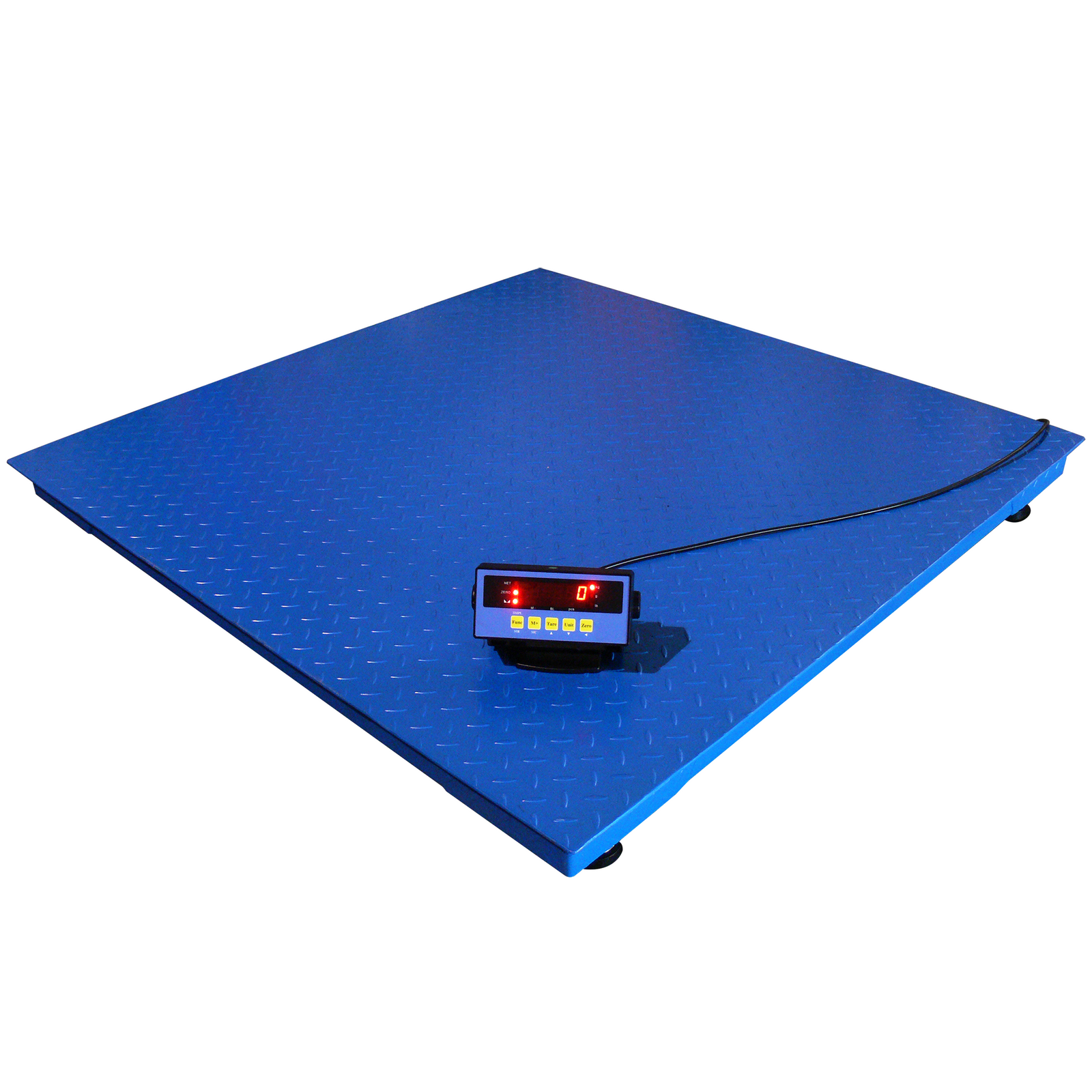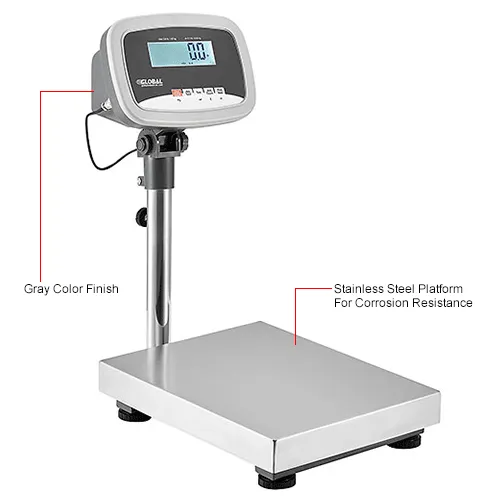Boost Process Accuracy with Trusted Industrial Scales Options
Boost Process Accuracy with Trusted Industrial Scales Options
Blog Article

Top Features to Search For in High-Quality Industrial Scales
In the realm of industrial operations, choosing the right range is critical for guaranteeing effectiveness and accuracy. Key features such as accuracy and accuracy, along with sturdiness and build top quality, play a significant duty in determining the viability of a scale for particular applications.
Precision and Accuracy
Guaranteeing the accuracy and accuracy of industrial scales is paramount for effective procedures across various markets. Exact dimensions are critical in markets such as production, logistics, and food handling, where also minor discrepancies can lead to considerable financial losses, endangered item top quality, or regulative non-compliance. Top quality commercial ranges are designed to deliver reputable efficiency, using sophisticated technology to ensure accurate weight readings.
The calibration procedure is necessary in keeping the accuracy of these scales. Regular calibration versus licensed referral weights ensures that any drift in dimension is remedied, thereby promoting compliance with sector criteria. Furthermore, using high-resolution load cells improves the scale's ability to find minute weight changes, further improving its precision.

Toughness and Develop Quality
Longevity and develop top quality are essential variables that determine the longevity and integrity of commercial scales sought after environments. Industrial scales are often subjected to extreme problems, consisting of exposure to dirt, wetness, and hefty loads. For that reason, the materials made use of in their construction play an important role in guaranteeing they can hold up against these difficulties.
Top notch industrial ranges usually feature durable housings made from materials such as stainless steel or light weight aluminum, which not just give structural honesty yet likewise withstand deterioration and wear. In addition, focus to information in the style, such as enhanced corners and shock-absorbent feet, can boost sturdiness and secure delicate elements from damage.
In addition, state-of-the-art components, consisting of lots cells and electronic parts, add to the total build quality. These components must be designed to endure temperature variations and vibrations frequently found in commercial settings. Guaranteeing correct access protection (IP ranking) is also crucial, as it shows the scale's capability to withstand dust and fluid direct exposure.
Inevitably, choosing commercial ranges with premium durability and develop high quality will result in an extra trusted, resilient solution that fulfills the strenuous demands of various commercial applications.
Tons Capacity and Range
When selecting commercial ranges, understanding their load capability and variety is important for meeting particular functional requirements. Tons capacity refers to the maximum weight that a range can accurately gauge, while the range suggests the range of weights the range can manage successfully. It is important to select a range that not just satisfies existing demands however also fits possible future demands.
Various sectors have distinct weight measurement requirements. For example, a production facility may require ranges with the ability of considering hefty additional info equipment elements, while a laboratory might only need ranges for lighter materials. Choosing a scale with an ideal load ability makes sure accuracy and accuracy, avoiding straining that might lead to devices damages or imprecise analyses.
A scale that can determine both light and hefty weights precisely can enhance functional effectiveness, allowing for flexible applications. Investing in ranges with appropriate load ability and variety dramatically contributes to efficiency, compliance with market standards, and overall operational reliability.
Convenience of Usage and Maintenance

Along with user-friendliness, simplicity of upkeep is an additional critical facet to think about. Scales that are developed with obtainable elements help with routine upkeep tasks such as calibration, battery, and cleaning substitute. A modular style can better enhance these procedures, permitting quick fixings and very little downtime.
In addition, the products used in the building of commercial scales play a considerable duty in maintenance. Ranges made from sturdy, corrosion-resistant products are easier to tidy and less prone to damages, which expands their life-span and lowers total operational expenses.
Regular maintenance routines, assisted by the manufacturer's suggestions, are crucial for guaranteeing ideal efficiency. By focusing on convenience of use and upkeep, companies can make certain that their commercial ranges stay efficient, reliable, and effective tools in their procedures. This leads to boosted performance and an extra efficient operations.
Connectivity and Assimilation Alternatives
Incorporating commercial scales into existing operational structures is substantially enhanced by robust connection options. High-grade industrial ranges must provide several connectivity approaches, including USB, Ethernet, and wireless options such as Wi-Fi or Bluetooth. These attributes help with smooth data transfer to main databases, ERP systems, or cloud systems, allowing real-time monitoring and coverage.
Moreover, progressed combination choices enable compatibility with existing tools, such as printers or barcode scanners, boosting and improving procedures workflow performance. Ranges that support industry-standard protocols, such as Modbus or RS-232, can quickly connect with various tools and systems, making Get More Information certain a cohesive functional environment.
Another vital aspect is the ability to integrate with software program services that examine and picture information - Industrial Scales. Scales equipped with APIs or software program advancement sets (SDKs) supply organizations the versatility to personalize capabilities tailored to their certain needs
Lastly, considering future scalability is essential; picking ranges that can adapt to advancing technological improvements ensures long-lasting worth and reduces the need for costly substitutes. In summary, assessing connection and assimilation alternatives is crucial when selecting high-quality commercial ranges that will boost operational effectiveness and data management.
Conclusion
In verdict, selecting top quality commercial ranges demands mindful factor to consider of a number of critical features. Industrial Scales. Focusing on these characteristics ultimately leads to boosted efficiency and lasting value in industrial applications, enhancing the significance of notified decision-making in range option.
In the realm of commercial operations, choosing the right scale is important for making certain performance and accuracy.Making sure the precision and precision of my company industrial scales is critical for reliable operations throughout different industries. Tons capability refers to the optimum weight that a scale can precisely gauge, while the variety suggests the spectrum of weights the range can handle properly. A production facility may call for scales qualified of weighing hefty machinery parts, while a lab may only require ranges for lighter materials. By prioritizing convenience of use and upkeep, companies can make sure that their industrial ranges remain efficient, trusted, and efficient devices in their procedures.
Report this page